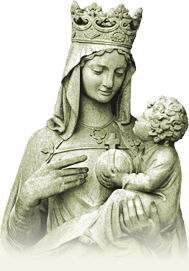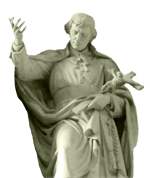Church
Joseph Ratzinger: - Andrew Guernsey
Vatican liturgical official makes new plea for "reform of the reform" - CWNews.com
A key Vatican official has called for "bold and courageous" decisions to address liturgical abuses that have arisen since the reforms of Vatican IIMons. Williamson greatfull for the Pope`s Decree - Mons. Richard Williamson
Let us then thank the Blessed Virgin Mary whose intervention will have been decisive, thanks to the nigh on one and three quarter million rosaries offered to her for this intention, by a number of yourselves amongst others. And let us thank and pray for Benedict XVI and all his collaborators who helped to push through this Decree
Ranjith on Kneeling for Communion during the liturgy and Communion on the Tongue - Shawn Tribe
Libreria Editrice Vaticana has published a book, Dominus Est by Bishop Athanasius Schneider, where that Bishop analyzes the question of communion recieved kneeling and on the tongueLiturgy reform: No going back - National Catholic Reporter
By invoking the church in biblical terms as the pilgrim people of God and as the body of Christ, Vatican II set the stage for a crucial shift away from the juridical “perfect society” embodied in the unabashedly monarchical church of TrentDossier: The Motu proprio of Bento XVI - N. Bux and S. Vitiello
Vatican II operated in the context of tradition and in tradition is set the legitimacy of the Ordo of Paul VI which is not in opposition to that of his predecessor, it never has been. So, no liturgical book or part of it has been abrogated, unless it contained errors: which happened precisely for the Institutio generalis Missalis Romani in 1969 when it had just been published and which Paul VI suspended for certain doctrinal ´inaccuracies` and then had published again in May 1970 with amendments made at paragraph 7.Words of Doctrine: Towards the Motu proprio - Rev. Nicola Bux and Rev. Salvatore Vitiello
The Motu proprio is an act of the personal responsibility of the Pope who is extending the freedom of the ChurchWhat now? How does ecumenism end up? How dows Second Vatican Council end up? - Orlando Fedeli
"With the Vatican II Council, the "seeds of the Word", expression of Saint Justin, were used as base of the ecumenical ideology. It was said, so, at the conciliar rooms, that in the pagan religions one could find "seeds of the Word"...Antichrist Alert! Cardinal Biffi Rouses the Church - Sandro Magister
The archbishop emeritus of Bologna delves back into the famous story by Vladimir Soloviev and applies it to the Christianity of today. A collateral target: Cardinal Martini´To liberate the Mass of Saint Pius V is to condemn the II Vatican Council by means of a symbol`, said Pope Paul VI - Orlando Fedeli
The liberation of the Everlasting Mass is, in fact, at least symbolically, a condemnation of the Second Vatican CouncilFrom Ratzinger to Benedict - Avery Cardinal Dulles - First Things Journal
Benedict XVI was present at all four sessions of the Second Vatican Council from 1962 to 1965. Whereas Karol Wojtyla took part as a bishop, the young Joseph Ratzinger did so as a theological expert. During and after the council he taught successively at the universities of Bonn (1959-1963), Münster (1963-1966), Tübingen (1966-1969), and Regensburg, until he was appointed Archbishop of Munich in 1977. In 1981 he became prefect of the Congregation for the Doctrine of the Faith, a post he held until the death of John Paul II in April 2005.Christ is reassuring and humble, as well as powerful, mighty - Bishop Robert Vasa, Catholic Sentinel, Portland, Oregon, Published by Oregon Catholic Press
We live in an age which places a very strong emphasis on tolerance, mutuality, and acceptance. I have heard repeatedly over the years that “Jesus never judged, condemned or excluded anyone.” I wonder if Peter would agree as the words of Jesus, “Get behind me you Satan,” rang in his ears.A FEW THOUGHTS for AUGUST, 2005 - Bishop Richard Williamson (FSSPX)
Two histories: The Spiritual Franciscans and Pope Celestine V (Saint Peter Celestine), and the Quietism and Blessed Innocent XI, Pope - Orlando Fedeli
The recent approval of the Neo-Catechumenate Statutes has been interprete d by many as being an approval of the heterodox doctrines taught by Kiko and Carmem to the catechizers of this movement, in their excessively “discreet” booklets.
Now, the simple approval of these Neo-Catechumenate Statutes is not, in any way, a certificate of the orthodoxy of their leaders and doctrines. The fact that the Neo-Catechumenate had their Statutes approved by the Holy See does not imply in the approval of Kiko’s doctrine about the “crumbs” of the Holy Host; neither does it mean that from now on it is allowed the practice, confessed by members of this movement, of dancing over the remaining or fallen particles of the consecrated hosts. Neither the communitarian confession should be praised instead of the auricular confession.
The pretension that the mere approval of the Neo-Catechumenate Statutes would be a doctrinal approval lacks any juridical basis and reveals a great deal of ignorance about the doctrine of the papal infallibility and about the History of the Church.
In order to put some light upon this question, we will tell, today, two important episodes of Church’s History, that involves two saint Popes – Saint Peter Celestine, the Pope Celestine V, and Blessed Innocent XI.
(Read more about the Neo-Catechumenate in our section of Readers' Letters).There is no salvation outside the Church - Marcelo de Andrade
In these times of religious syncretism, much has been spoken about liberty of religion, cult and creed, and about salvation outside the Church. This is the ecumenism, professed everywhere. But, let us see what the Catholic Church has to say about it, by means of her infallible magisterial. Because much has been spoken about, but little has been studied.Hail to the Pope! - Orlando Fedeli
In times of religious and ecclesiastical crisis - specially when it reaches the highest authorities of the Church - two opposite temptations usually appear.
The first, and more serious one, is of revolt against the Pope's authority, which may lead to schism and heresy.
The second, and subtler one, is to accept in silence all error, by respect of authority, or to close one's eyes to the sins of scandal into which authority might incur.An embassy to Heaven - Orlando Fedeli
Clergymen who left everything to undertake a journey towards sure death, avid for giving their own blood for Our Lord Jesus Christ.
That happened in Japan in the XVIth Century.The Collapse of the Church in the West: 1960-2000 - Father G.H. Duggan S.M.*
It is a fact, now evident to everyone, that the Church in the West has in recent decades suffered a severe setback; severe enough to call it a collapse.
Since no one has invented an agapometer to measure the degree of spiritual fervour in the hearts of the faithful, our only means of measuring the extent of the collapse is statistics and the statistics show clearly that the collapse is real.
In his book The Battle for the American Church, the historian Monsignor George A. Kelly, has the figures up to 1979 for the Church in the United States. They were then horrendous and there has not been any improvement in the intervening years. Nor is the statistical picture notably different in the other countries that, with the United States, constitute the West.
* (From www.christusorder.com)The end of Gaudium et Spes? - James Hitchcock
A strained optimism--possibly a product of the era in the Second Vatican Council met --thwarts realistic attempts to address the crisis in Catholicism today.
(From The Catholic World Report – Sept. 2, 2003)Gregorian Chant: how and why it was strangled in its own cradle - Sandro Magister
The prior of the Roman monastery of Pope Gregory the Great enriches, with new details, the record of the musical disaster following the Second Vatican Council. And the Vatican still does nothing to correct the situation.








